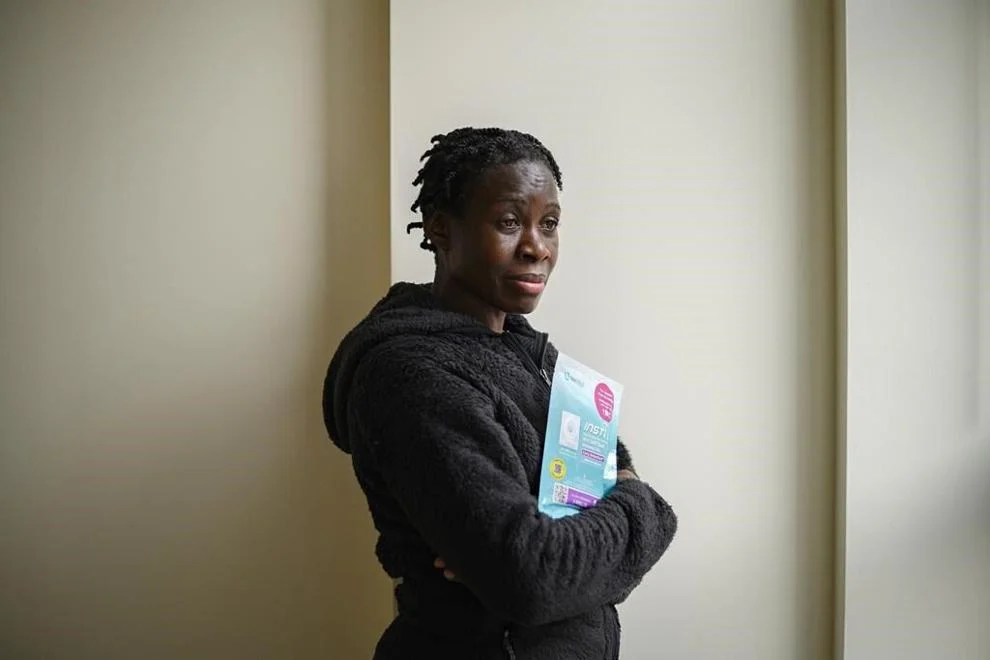
Prossy Luzige, a prevention and linkage coordinator who works in the York Region of Ontario, poses for a photograph with HIV self-test kits, photographed in Toronto, Friday, Feb. 16, 2024. THE CANADIAN PRESS/Christopher Katsarov
Prossy Luzige, program coordinator at CAYR Community Connections in Ontario, often receives inquiries about HIV tests for private use. These take-home tests play a vital role in reaching out to individuals as HIV infections rise in Canada. However, the nationwide initiative to distribute these kits faces jeopardy as funding is set to expire by the end of March.
Luzige expressed concerns about the future after the funding ceases, wondering how they will assist community members without resources. According to Sean Rourke, a scientist involved in the study that facilitated the approval of these tests in Canada, the federal government intends to discontinue the self-test program, leaving no alternative plan in place.
Rourke, associated with REACH Nexus at Canadian Institutes for Health Research and St. Michael's Hospital in Toronto, emphasized the success of the program, which utilizes the INSTI test to provide results within a minute using a blood drop. The initiative was set to expand to include tests for both HIV and syphilis, recently approved by Health Canada.
Frontline workers believe these tests are instrumental in curbing the surge in new HIV cases, which saw a nearly 25% increase in Canada in 2022. While Montreal recorded a significant rise in new cases, many individuals across the country remain undiagnosed.
The self-test program, initiated in November 2022, received praise for reducing barriers associated with conventional testing methods. The federal government initially allocated $8 million for the initiative, with an additional $8.6 million to extend it until the end of March 2024. However, no further funding commitments have been made.
The Public Health Agency of Canada stated it is exploring options to sustain the availability of HIV self-test kits beyond March 31, 2024. Rourke stressed the importance of extending funding, highlighting the role of testing in preventing transmission and dispelling stigma associated with HIV.
Over 215,000 kits have been distributed to nearly 400 organizations nationwide, reaching diverse demographics. While the cost per test is around $35 online, the program procures them for $10 through negotiations. Frontline workers from various regions have emphasized the significance of these tests in reducing stigma and increasing access to testing, particularly in underserved communities.
The program's impact has been profound, with many individuals opting for testing for the first time. It has been particularly beneficial for marginalized groups and newcomers, providing a crucial avenue for early diagnosis and treatment. Maintaining federal funding for these tests is crucial for ensuring widespread access and preventing further transmission of HIV.















